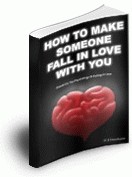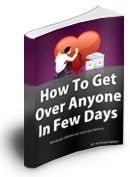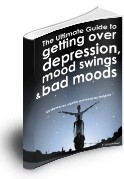



Do you believe in the saying, “We always long for the forbidden things and desire what is denied us”? Have you ever thought why people behave in this way?
Do you think we have the tendency to do what we are told not to? Do you know how you feel when you are told that you can’t have a relationship with a co-worker or that you can’t talk on the phone while driving or that you can’t eat a certain type of food because it is unhealthy?
Studies have shown that most people think, “This thing is forbidden? That’s exactly the thing I’m going to do.”
This theory is based on the idea that people desire freedom of choice and if this freedom is removed by external limits or regulations, they become motivated to restore it by behaving in a way that is opposite to the rules.
In other words, when people feel obliged to adopt a certain behavior, a perceived limitation of freedom causes an emotional state called psychological reactance and encourages behaviors that can restore this freedom.
If a particular freedom is lost some people may experience increased desire for the lost freedom and view it as more attractive than it was before. They may perform the behavior that was taken away or forbidden in order to prove they are free. Some people may also dislike and be hostile towards the person or the institution responsible for removing the desired option. (see also Physical attractiveness perception)
Other individuals may try to reestablish their freedom in another way. Suppose, for example, that a person is told by his doctor that he can’t smoke a cigarette. That person would then become the friend of someone who does something similar such as smoking marijuana. This is called the “indirect restoration” of freedom.
Think about how some medical patients eat what their doctors have told them not to eat in order to feel that they have control over their lives and are free to do whatever they want.
Reactance theory has also been connected to economic issues. Entrepreneurs may perceive taxes as a threat to their freedom of deciding how they want to handle their finances. That’s why many businessmen have negative feelings towards the government and try to escape from paying taxes.
We also see reactance with teenagers who decide to date the people whom their parents had forbidden them to.
Interestingly, studies found that people can become reactant if they talk to themselves in a certain way. If you make a statement like “I will not be lazy,” to yourself you are likely to become reactant because it sounds dictatorial. But if you ask yourself a question like, “Will I exercise?” laziness would not seem so attractive then.
In one study some participants wrote “Will I” 20 times and others wrote “I will not” 20 times. Next the participants were asked to do some word games. Participants who had written “Will I” solved more words than the others who wrote “I will not”.
This is because “Will I” does not create a sense of obligation but instead resulted in creating a sense of enjoyment, persistence and improved performance on the task.
The book The ultimate guide to getting over depression was released by 2knowmself, the book provides a 100% guarantee for feeling better else you will be refunded. 2knowmysef is not a complicated medical website nor a boring online encyclopedia but rather a place where you will find simple, to the point and effective information that is backed by psychology and presented in a simple way that you can understand and apply. If you think that this is some kind of marketing hype then see what other visitors say about 2knowmyself.
Want to know more?
How to use the weapon of attention to attract people to you
How to fulfill your dreams and make them true
Why do good women fall for bad men
How to get over anyone in few days (book)
How to make anyone fall in love with me fast (book)
How to end Depression instantly (book)
How to control people's minds (Course)
How to develop rock solid self confidence fast (course)
 How to make someone fall in love with you. Based on the psychology of falling in love |
 How to get over anyone in few days Breakups will never hurt like before. |
 How i became a dot com millionaire The ultimate guide to making money from the internet |

